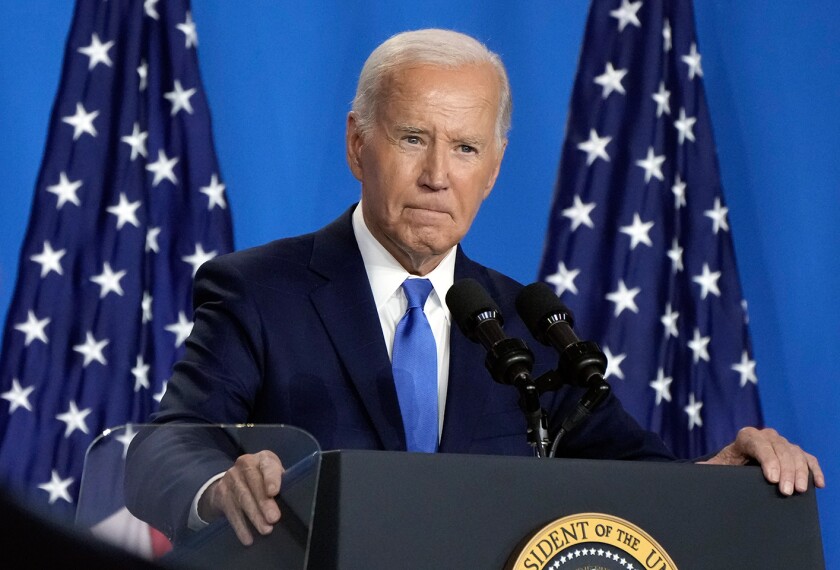The federal law he championed has been replaced by a measure touted as more flexible and fairer to schools, but former President George W. Bush sees clear reasons to stand up for the No Child Left Behind Act.
In an appearance in San Diego last week at a conference of education business officials, Bush defended the law he signed in 2002, which became a polarizing symbol of the testing-and-accountability era.
“For the first time, in return for money, people had to show results. I view it as one of the great pieces of civil rights legislation,” Bush said at the ASU/GSV Summit.
Previously, states and schools could skate by on middling student achievement and faced no consequences for not delivering results, he said.
“Finally, someone came along and said, ‘Measure it,’ ” Bush said. “People said it’s unfair to teachers, or there’s no role for government in education like that, … and my answer was, first of all, it’s fair to kids. And second, if we spend money, damn right we want to know if it’s working.”
Bush gave the keynote speech at the conference, a magnet for education companies and startups, entrepreneurs and venture capitalists, and others with an interest in the K-12 and college markets.
The NCLB law required states to test annually in reading and math and to bring all students up to “proficiency” by the 2013-14 school year—though it allowed states to define the standard for proficiency. Schools were required to improve their scores yearly or face increasingly stiff penalties.
Critics of the law said it forced districts and teachers to focus too much on preparing students for high-stakes tests at the expense of more well-rounded classroom strategies. The law’s backers argued that it cast a spotlight on underperforming schools, holding them to account and helping students whose needs were previously ignored.
In 2015, Congress replaced No Child Left Behind with the Every Student Succeeds Act, which gives states and districts more flexibility in spending and policy, including decisions about standards for improving low-performing schools.
Bush told the ASU/GSV attendees that “maybe there was overtesting” under NCLB. But he also argued that it forced policymakers to set expectations for students who too many educators and policymakers had given up on.





